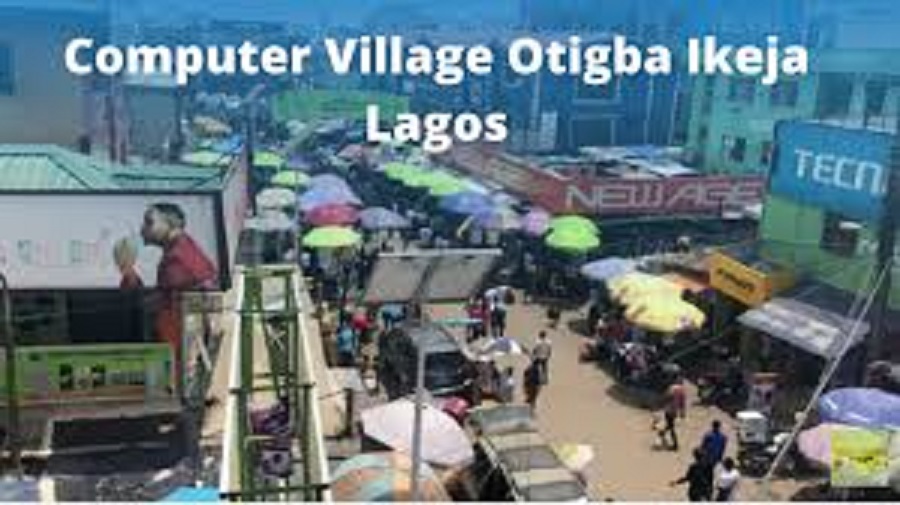News
Building Resilience: Six Simple Climate Solutions for Big Impact in Nigeria

Nigeria, a nation brimming with potential, faces a significant challenge: climate change. In 2023, Nigeria actually recorded a decline in rainfall to about 1061 millimeters (mm) compared to 2022, which was about 1137.078 millimeters (mm).

Grace Oluchi Mbah, Co-Founder and Executive Director, Climate Action Africa
These erratic rainfall patterns, combined with rising sea levels of 0.5 meters, could force 27-53 million Nigerians who live along the coast to relocate by the end of the century. These factors are driving adverse climate effects that are already being felt.
But amidst these challenges lie opportunities. Here, we explore six simple yet impactful climate solutions that Nigerian communities can adopt to build resilience and secure a sustainable future.
1. Embrace Climate-Smart Agriculture: Nigeria is a developing economy with a 2022 statistics of an estimated population of 88.4 million people who live in extreme poverty. Agriculture can be a solution to the poverty experienced by a majority in Nigeria. According to the World Bank, investing in the agricultural sector is more effective at raising incomes among the world’s poorest. Still, traditional farming methods in Nigeria are often vulnerable to droughts and floods.
Climate-smart agriculture (CSA) offers a solution. CSA is a set of farming methods that is aimed at increasing the resilience and productivity of the land affected by climate change. Practices like using drought-resistant crop varieties, practicing water-saving irrigation techniques like drip irrigation, and incorporating cover crops to improve soil health all contribute to a more resilient agricultural system. By adopting CSA techniques, Nigerian farmers can not only protect their livelihoods but also become part of the climate solution. It is important to note that Climate Smart Agriculture is a solution to the many problems caused by climate shocks but not a final solution to climate change.
2. Plant Trees, Reap the Rewards: The United Nations places Nigeria as the highest with a deforestation rate in the world, with an estimated 3.7% of its forest lost every year. Expanding agriculture and logging; both illegal and legal are some of the causes of deforestation in Nigeria. Still, it is imperative to understand that forests play a vital role in regulating climate.
Interestingly, in 2023, some of the States in Nigeria were involved in tree-planting initiatives. There is still a lot that needs to be done. Nigeria could take a cue from Ethiopia that accomplished an exceptional feat in 2019 when they planted 350 million trees within 12 hours. Large-scale tree planting initiatives can create green corridors, improve air quality, and mitigate the effects of floods and droughts. Planting trees also provides economic benefits. Programs that encourage community involvement in tree planting, with benefits like carbon credits or fruit production, can create a sense of ownership and ensure the long-term success of these initiatives.
3. Harness the Power of Nature: Harnessing solar energy technologies for generating electricity as an option for fossil fuel energy usage in Nigeria could prove to be a huge solution to climate change problems. The solar radiation potential in the northern and southern regions in Nigeria is given as 5.62 up to 7.01 and 3.54 up to 5.43 kWhm-2 respectively. Nigeria boasts abundant sunshine and investing in solar energy solutions like rooftop panels or community solar farms can significantly reduce dependence on fossil fuels.
Solar power is not just environmentally friendly; it’s also reliable and cost-effective in the long run. Government incentives and microloans can make solar technology more accessible, empowering individual households and businesses to become energy independent. Practical solutions are needed to accelerate the adoption of renewable energy. A notable example is the “Nigeria Police Green Initiative” that was announced last year.
4. Waste Not, Want Not: The challenge of having sanitary landfills in Nigeria is still a huge conversation when it comes to creating solutions for climate change problems. Most States in Nigeria still operate open dumping. Organic waste, when left to decompose in landfills, releases methane, a potent greenhouse gas. Composting kitchen scraps and yard waste transforms this waste into nutrient-rich fertilizer, perfect for boosting soil health in gardens and farms. This simple practice reduces reliance on chemical fertilizers, promotes a circular economy, and mitigates climate change.
Landfills can also be areas that can be transformed into thriving green spaces that would be fit for the whole surrounding community to enjoy. Some examples are the Mucking Marshes Landfill in England that was transformed to Thurrock Thameside Nature Park, Mount Trashmore Park in Virginia, USA, Qiaoyuan Park in China and Chambers Gully in Australia.
5. Embrace Sustainable Water Management: Nigeria faces growing water scarcity. Inadequate access to water contributes to the water and sanitation crisis in Nigeria. According to the World Bank, approximately 70 million Nigerians do not have access to safe drinking water and 144 million do not have access to basic sanitation facilities. One solution to the water crisis that affects climate change in Nigeria is to adopt sustainable water management.
Rainwater harvesting systems can capture and store precious rainwater for later use. This captured water can be used for irrigation, washing, or even drinking after proper treatment. Promoting water-saving practices like fixing leaky faucets and taking shorter showers can further reduce pressure on freshwater resources.
6. Empowering Communities, Building Together: The success of climate solutions hinges on community engagement. Investing in education and awareness programs empowers communities to understand the threat of climate change and take ownership of solutions. Supporting local NGOs and community leaders who are spearheading climate action initiatives is crucial.
These six solutions are just a starting point. By adopting these practices and fostering a spirit of innovation, Nigerian communities can build resilience, mitigate the effects of climate change, and create a more sustainable future for generations to come. The journey towards a climate-resilient Nigeria requires collaboration between government, businesses, and communities. With collective action and a commitment to these simple yet impactful solutions, Nigeria can not only weather the storm of climate change but emerge stronger and more sustainable than ever before.
News
JAMB Waxes Worriedly over Rising Digital Exam Fraud

Joint Admissions and Matriculation Board (JAMB) has called for radical and urgent interventions to curb the rising wave of sophisticated digital examination fraud in Nigeria.

JAMB warned that the trend can cause long-term damage to the country’s education system.
Prof. Is-haq Oloyede, JAMB Registrar, made this call during a recent event in Abuja, as reported in the JAMB Bulletin published Monday.
Oloyede described the evolving tactics employed by fraudsters during the 2025 Unified Tertiary Matriculation Examination (UTME) as “worrisome, highly sophisticated, and capable of jeopardising national development.”
“Malpractice is not only compromising learning and research, it is endangering our collective future,” Oloyede warned.
“There is an urgent need for decisive action on these new and disturbing developments. The public must not treat this menace with levity.”
He lamented that instead of addressing the growing problem, “some people are dissipating their energies on spreading unhelpful conspiracy theories and hatred, while our future is being jeopardised by a new crop of sophisticated digital fraudsters.”
The registrar detailed how high-level examination malpractices were uncovered during the 2025 UTME, leading to the withdrawal of some results and the arrest of several culprits nationwide.
According to him, JAMB discovered that certain Computer-Based Test (CBT) centres and school proprietors had colluded with hackers to gain remote access to candidates’ systems and submit pre-programmed answers to local servers at compromised centres.
Oloyede also highlighted the use of AI-enabled photo blending to impersonate candidates, noting that many of the impersonators were current undergraduates. Other fraudulent tactics included:
He said they also include registration with combined fingerprints through the combination of fingerprints from multiple persons for a single candidate’s registration.
He cited the extension of local area networks from some dubious centres to remote “strong rooms” as well as the pairing of candidates with professional mercenaries to gain access to the examination hall.
He revealed that over 3,000 candidates have been identified as either accomplices or beneficiaries of these crimes, stressing that many of them are university students already enrolled in institutions.
News
SERAP Sues NNPC over Alleged Missing ₦500Bn, Seeks Accountability

Socio-Economic Rights and Accountability Project (SERAP) has filed a lawsuit against the Nigerian National Petroleum Company (NNPC) Limited over its failure to account for the alleged missing ₦500 billion, which the company reportedly failed to remit to the Federation Account between October and December 2024.

SERAP’s legal action comes after allegations made by the World Bank, which revealed that out of the ₦1.1 trillion generated from crude sales and other income sources in 2024, NNPC only remitted ₦600 billion.
This left a deficit of ₦500 billion, which remains unaccounted for.
According to the lawsuit filed at the Federal High Court in Lagos on Friday, the organisation is demanding that NNPC explain the whereabouts of this missing amount.
The suit, number FHC/L/MSC/553/2025, seeks to compel NNPC to account for the missing funds.
In the legal documents, SERAP is asking for an order of mandamus to direct NNPC to account for the alleged missing ₦500 billion.
The organisation also wants the court to instruct NNPC to invite appropriate anti-corruption agencies to investigate the spending and whereabouts of the funds.
Furthermore, SERAP requests that those responsible for the missing money be identified, held accountable, and handed to relevant authorities for investigation and prosecution.
The lawsuit follows NNPC’s response to SERAP’s Freedom of Information (FoI) request, where the company argued that the FoI Act does not apply to it.
NNPC’s lawyers, Afe Babalola and Co, claimed that the company is exempt from the FoI Act.
SERAP, however, argues that the NNPC must comply with the Nigerian Constitution and the Freedom of Information Act, along with international human rights and anti-corruption standards, in exercising its statutory functions.
In the suit, SERAP emphasizes that the missing funds have significantly contributed to Nigeria’s economic instability, including the country’s high deficit spending and crippling debt crisis.
The organisation argues that the NNPC’s failure to remit these funds has worsened an already precarious economic situation.
SERAP also stresses that the missing oil revenues reflect a broader failure in NNPC’s accountability and transparency. The organisation highlights that the company’s continuing disregard for these principles damages the country’s economic well-being and governance systems.
The lawsuit also references a recent Supreme Court ruling, which declared that the Freedom of Information Act applies to public records in the Federation, including those kept by NNPC. SERAP calls on the court to enforce the application of this ruling in the case at hand.
The suit filed on behalf of SERAP by its lawyers, Kolawole Oluwadare, Ms Oluwakemi Oni, and Ms Valentina Adegoke, read in part, “Nigerians continue to bear the brunt of these missing public funds from the NNPCL meant for the economic development of the country.”
“There is a legitimate public interest in providing the details sought. The NNPC has a legal responsibility to account for and explain the whereabouts of the missing oil money.”
“The country’s oil wealth ought to be used solely for the benefit of the Nigerian people, and for the sake of the present and future generations.”
“Without the full recovery and remittance of the missing ₦500 billion oil revenues, the dire economic situation may worsen and Nigerians will continue to be denied access to basic public goods and services.”
“Nigerians have the right to know why the NNPCL failed to remit the subsidy removal savings to the Federation Account, and why the NNPCL is deliberately denying states and local governments their allocations from the Account, contrary to the provisions of the Nigerian Constitution.”
“The failure by the NNPCL to remit the money to the Federation Account is a grave violation of the public trust and the provisions of the Nigerian Constitution, national anticorruption laws, and the country’s anticorruption obligations.”
“Despite the country’s enormous oil wealth, ordinary Nigerians have derived minimal benefit from oil money primarily because of widespread grand corruption, and the entrenched culture of impunity of perpetrators.”
“Combating the corruption epidemic in the oil sector would alleviate poverty, improve access of Nigerians to basic public goods and services, and enhance the ability of the government to meet its human rights and anti-corruption obligations.”
“The Nigerian Constitution, Freedom of Information Act, and the country’s anti-corruption and human rights obligations rest on the principle that citizens should have access to information regarding the spending of their commonwealth.”
“The Auditor-General of the Federation and Nigeria Extractive Industries Transparency Initiative (NEITI) have for many years documented reports of disappearance of oil money from the NNPCL.”
“The World Bank recently disclosed that out of the N1.1tn revenue from crude sales and other income in 2024, the NNPCL only remitted N600bn, leaving a deficit of ₦500bn unaccounted for.”
“The revenue and other income were expected to be paid into the Federation Account and shared by all levels of government but the NNPCL reportedly failed to do so.”
“SERAP notes that Section 15(5) of the Nigerian Constitution requires public institutions to abolish all corrupt practices and abuse of power.”
“Section 13 of the Nigerian Constitution imposes clear responsibility on the NNPCL to conform to, observe and apply the provisions of Chapter 2 of the Constitution.”
“Nigeria has made legally binding commitments under the UN Convention against Corruption to ensure accountability in the management of public resources. Articles 5 and 9 of the UN Convention against Corruption also impose legal obligations on the NNPCL to ensure proper management of public affairs and public funds.”
“These commitments ought to be fully upheld and respected.”
“The missing oil revenue has also impeded Nigerians’ ability to enjoy their economic and social rights, and denied them access to essential public goods and services, especially at the time of the cost of living crisis in the country.”
“Had the NNPCL accounted for and remitted the alleged missing ₦500 billion to the Federation Account, it is likely that more funds would have been allocated to the fulfilment of economic and social rights, such as increased spending on public goods and services.”
“The Freedom of Information Act, Section 39 of the Nigerian Constitution, article 9 of the African Charter on Human and Peoples’ Rights and article 19 of the International Covenant on Civil and Political Rights guarantee to everyone the right to information on the whereabouts of the missing ₦500 billion of oil revenue.”
No date has been fixed for the hearing of the suit.
News
Ikeja Computer Village Begins Biometrics Registration to Tackle Crime

The leadership of Computer Village, Ikeja, has begun a biometric registration and enumeration exercise to sanitise the market, curb criminal activity, and restore investor confidence.

In a statement, Abisola Azeez, Iyaloja, described the initiative as part of a broader rebranding effort to address issues like phone snatching, fraudulent technicians, and substandard goods.
It stated, “The market’s leadership announced the move after a recent security incident led the Lagos State Task Force to consider a complete shutdown. However, market representatives intervened to safeguard legitimate traders. Under the new rules, only registered vendors with ID cards displayed at their stalls will be allowed to operate.
Approved street setups will be limited to plastic chairs, show glasses, and umbrellas, while wooden structures and open flames are banned to reduce fire hazards.”
Adeniyi Olasoji, baba Oja, noted the market’s damaged image, emphasising new security measures like CCTV, emergency alert systems, and increased collaboration with law enforcement.
“Other leaders, including Prince Tony Nwakeze, Ralph Chibuzor, Ben Onuorah, Nofiu Akinsanya, and Ikani Tony, affirmed the move as essential for transforming Computer Village into a structured, globally competitive digital hub.
The registration will be completed within two months, after which only verified traders will be allowed to operate.
Meanwhile, Fidelix Ezeugwu, executive secretary of the Ikeja Market Board, emphasised the market’s unified leadership, comprising representatives from four major ethnic groups, and the importance of updated data to align with global standards.
He said, “Additional upgrades include installation of walkie-talkies for improved communication, enhanced street lighting, and CCTV cameras to monitor activity.
“These improvements aim to position Computer Village as a world-class market, comparable to international hubs like Dubai and Singapore.”

 News1 day ago
News1 day agoSERAP Sues NNPC over Alleged Missing ₦500Bn, Seeks Accountability

 News1 day ago
News1 day agoFirst Asset Management Receives 2024 Fund Manager Award

 E-Business1 day ago
E-Business1 day agoDyna.Ai Launches Operations in Nigeria

 General News1 day ago
General News1 day agoNigeria Relaunches National Talent Export Programme to Unlock $1 Trillion Global Outsourcing Market

 E-Business1 day ago
E-Business1 day agoFarmers to Get Identity Card for Loans, Inputs

 Telecom1 day ago
Telecom1 day agoNiRA Holds 17th AGM, Elects New Leadership to Propel .ng Domain Growth

 Telecom1 day ago
Telecom1 day agoARCON Probes 9mobile over Alleged N1Bn Advertising Debt

 General News1 day ago
General News1 day agoFG Plans Special Court for Exam Cheats



























